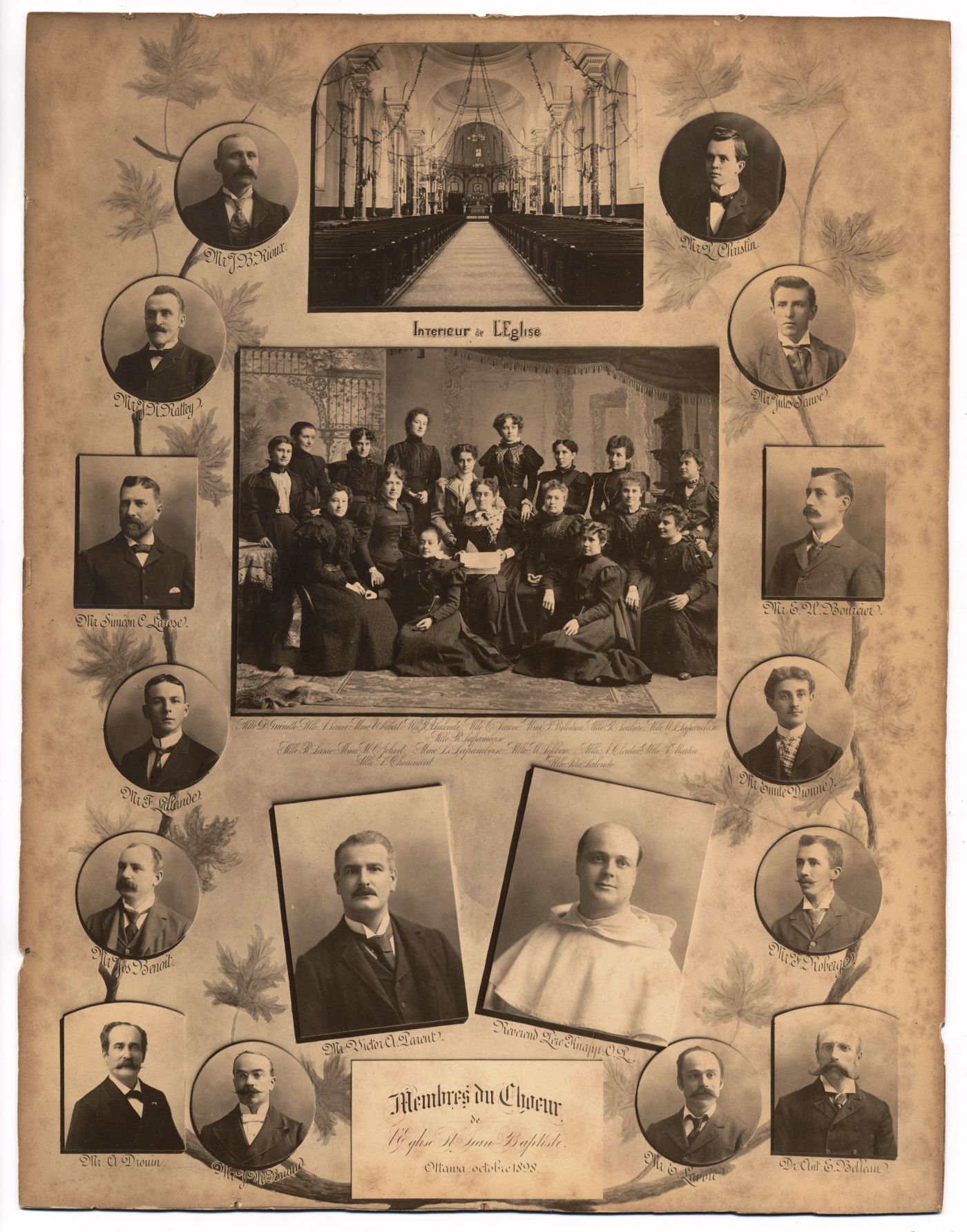On July 28, 1872, 37 influential citizens from the LeBreton and Rochesterville neighbourhoods address Msgr Joseph-Bruno Guigues, Bishop of Ottawa. They request him to authorize “the necessary steps to acquire a property located on Queen Street, at the corner of Sherwood Street or any other setting in the neighbourhood, with the intention of building a temporary wooden church there.” 1They are tired of crossing the river to receive religious services in Hull.
The church goes up quickly, thanks to subscriptions and help from parishioners. The formal blessing on November 3, 1872 is cause for great celebration. The first French-Canadian parish in Ottawa makes history.
The Saint-Jean-Baptiste Parish is initially entrusted to Parish Priest Eugène-Henri Porcile, who makes an unsuccessful attempt to found a company of teacher clerics to assist him. The Dominicans, recently arrived in Canada, take over in 1884, lending an air of originality to the parish. Just before their arrival, the convent, built at the turn of the century next to the new church, moves to a more suitable site on Primrose Street, where it promotes a Saint-Jean-Baptiste liturgical service described by historian Pierre Savard as “exceptional.”2 The convent attracts renowned theologians from abroad to deliver lectures well attended by the general public. It also trains some of the most illustrious religious leaders in the country – men such as Father Georges-Henri Lévesque, considered one of the great inspirations behind Quebec’s Quiet Revolution, who studied and taught there before establishing the Faculty of Social Sciences at Laval University in 1938.
The convent and the parish are closely linked. Its teachers act as preachers and preside over parish celebrations. Other members of the Dominican community are involved in parish administration, while yet others participate in parish sharing activities. Saint-Jean-Baptiste attracts worshipers from across the city for major celebrations during the liturgical year. It is known throughout the country, and the Saint-Jean-Baptiste Mass is often broadcast on Radio-Canada television.
Especially active in delivering higher education, and in animating cultural and intellectual life, the Dominicans of Ottawa make the Saint-Jean-Baptiste Parish a place “unquestionably at the forefront of the liturgical renewal of the 1950s and early 1960s.”3 The Dominican convent eventually becomes established as a faculty of theology that awards canonical degrees. In 1967 the Ontario government confers a civil university charter, and the convent becomes the Collège dominicain de philosophie et de théologie.
1 Reproduced in Élisabeth J. Lacelle and Pierre Savard (eds.), Saint-Jean-Baptiste d’Ottawa, 125e anniversaire 1872-1997, De mémoire vive, 1947-1997, Ottawa, 1997, p. 10 (translated from the original).
2 Pierre Savard, “La paroisse Saint-Jean-Baptiste 1947-1997,” in Élisabeth J. Lacelle and Pierre Savard (eds.), Saint-Jean-Baptiste d’Ottawa, 125e anniversaire 1872-1997, De mémoire vive, 1947-1997, p. 23 (translated from the original).
3 Ibidem.
